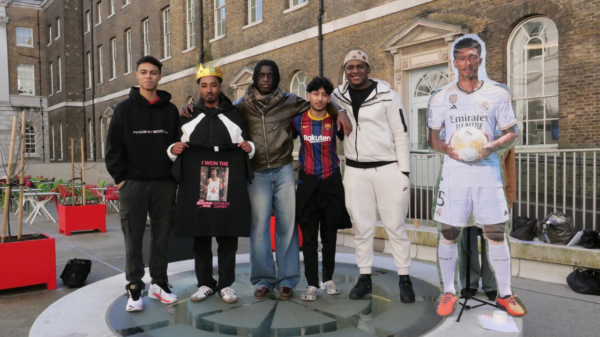Comment Editor Samuel Pennifold on the racism experienced and perpetuated by former Yorkshire County Cricket Club player Azeem Rafiq.
Azeem Rafiq was once Yorkshire County Cricket Clubs youngest ever captain, a talented player and a role model for British-Asians. In the last few weeks though Rafiq has spoken out about the horrific racist abuse and bullying he and other players of Asain heritage experienced at Yorkshire. Talking to the Digital, Culture, Media and Sport Committee Rafiq outlined some of the racist terms directed at his Pakistani heritage, the laughed off examples of using the names of other players of Asain heritage and bullying. An inquiry by the Digital Culture, Media and Sports department found how senior management at Yorkshire CCC had attempted to cover up their own investigation into the abuse that named multiple former players and coaches, including former England Captain Micheal Vaughn. Vaughn denies the allegations but has apologised for any hurt he caused, multiple members of the Yorkshire CCC have now resigned.Â
In recent days though it has come to light that Rafiq used anti-Semitic language in a Facebook message dating back to 2011. This by no means negates Rafiq’s own experiences of racism and abuse but what it does tell us is that the public discord around racism needs to be less about scapegoating and cancelling people, and more about creating equality and giving people the chance to repent and reform themselves.
Of course, racism is inexcusable, and should never be tolerated but the Rafiq case goes to show us that none of us are without our flaws. We all have flaws and we all have much to learn about what we can do better. In the search for a more equal society, we must learn to assess in an unemotional and cold light our personal biases, the personal biases of people around us, as well as institutional bias. But at the same time, we must also learn that if we wish to pursue a truly just society second chances and the time to learn from the past must also be afforded to those who need them and it.Â
If second chances and time do not work, if someone cannot leave behind their own biased then yes the “cancelling†of such people is a just move but this is should be a last resort, not the first step.Â
Perhaps cricket not being the most popular support has allowed for a more civil discussion and appropriate steps by all parties to be taken without knee jerk reactions, without the media and social media courtrooms being fully opened up for persecution. But this is not just a tragedy and a sobering revelation of the horrific everyday reality of many people of Asain heritage and other ethnic minorities face – it is an opportunity for cricket and society at large to take more much-needed steps towards a more civil public discourse on race. One that can help us heal, repent and move forward together.















